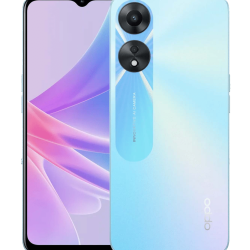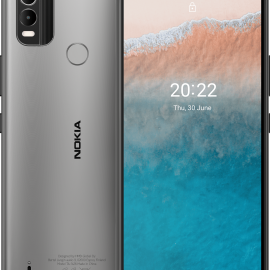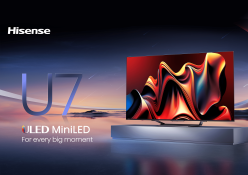TECH BUYER’S GUIDE, December 2023 – Best budget phones tested and compared on sound, price and build quality by the experts at Tech Magazine
PHONES | HEADPHONES | LAPTOPS | TABLETS | HEALTH TRACKERS | WIRELESS SPEAKERS | GAMING | TVS | ACCESSORIES | STREAMING | MOUSES | GAMING MOUSES
Rugged reliability is what you get when you pack all the most stable and top-performing tech into one handset. Stylish and solid in hand, its superior cameras, top-class high-refresh screen and decent waterproofing all combine to make this our best-value workhorse. R9 000
This stylish handset is a gaming powerhouse offering masses of processing powerhouse offering masses of processing power, a superb high refresh 6.5-inch screen, long lasting 5000 mAh battery and even some splash proofing. The cameras are good, but could be better, but otherwise, it’s light and easy to handle. R8900
Probably the sweet spot for most shoppers, this budget phone offers a 90 Hz screen, a superb quad-camera setup and excellent audio for a very low price. Add NFC for tap payments, Gorilla Glass on the front, and a neat design that weighs just 181 g, and you can’t go wrong here. R 4 000
This stylish, yet affordable phone does all the basics well and now includes a beautiful 90 Hz high- refresh screen and a range of novel photographic features including atmospheric lighting and filters, variable flash on selfies, and a solid low-light camera. R3 500
Our low-price hero is built tough, with an aluminum frame and IP52 dust and splash protection. The 6.5” screen is quality, and it offers both face- and fingerprint unlocking. It’s the best phone we’ve ever used running the lightweight Android Go. R1 900
BUYING GUIDE
How to buy a budget phone
We think the smartest phone shopping is happening down at the other end of the market, below R5 000, Entry-level phones below R5 000 have several features in common, some of which are not found on more expensive phones.
SCREEN: Screens larger than 6 inches are now the norm, making them perfect for gaming, videos, browsing and reading documents. But screen quality varies greatly across brand and models, with high refresh of 90 Hz, only offered on selected entry-level models. Research shows that your screen is the single biggest drain on your battery, and switching off high refresh and turning down the brightness will probably help.
MEMORY AND DATA STORAGE: The standard allotment of 4 GB RAM is adequate to keep things brisk on basic phones, but the standard 64 GB of storage. They also all have FM radios and a trusty old-fashioned headphone jack. will likely fill up after the first year. Many phones are available with 128 GB storage, but thankfully, almost all entry-level phones also have a microSD card slot for expanding your storage.
BATTERY: A 5 000 mAh battery is now the minimum standard and should last around two days with mixed usage. Fast charging above 18 is offered on many new models, but make sure the charger is included in the box.
CAMERAS: Multi-camera setups are now the norm, usually including a wide-angle or a macro lens. But many of the cameras advertised are not true cameras, but sensors to improve overall camera performance. More cameras with more megapixels do not make for better pictures. One camera with a high-quality sensor always beats several average sensors.




![image028[42] image028[42]](https://tfgmedia.co.za/wp-content/uploads/elementor/thumbs/image02842-qap83b2ngk3fktrq05lu0ckdettf8jw30vxjl39rus.jpg)

![Xiaomi Redmi 250×250[9] Xiaomi Redmi 250x250[9]](https://tfgmedia.co.za/wp-content/uploads/elementor/thumbs/Xiaomi-Redmi-250x2509-1-qddaxhtpns3um45l8ts97m94f7iq46gq0oz66qww1w.jpg)
![image030[81] image030[81]](https://tfgmedia.co.za/wp-content/uploads/elementor/thumbs/image03081-qap80eqkdy4ls3z9xei8tkw7h23oi5dvmjinbdkh1g.png)




